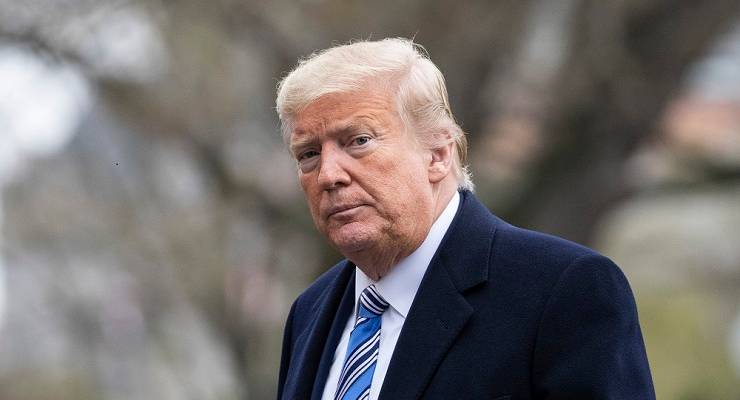
The numbers are looking good
Australia recorded just eight new cases of COVID-19 yesterday, its lowest numbers since early March.
In NSW, which has long been the worst affected state, new cases remained in the single digits for the past five days.
National trajectories and how Australia compares:

State and territory breakdowns of daily confirmed cases:

It’s also worth noting we’re now about two weeks out from the Easter long weekend. If large groups of people had ignored health advice and went out and held gatherings, we may have started to see a spike in cases by now.
So when do things start to change? While the government is being careful to avoid a Singapore-style virus resurgence, chief medical officer Brendan Murphy indicated small group gatherings and an eased restrictions for community sport and retail could be the first welcome changes.
Everything will boost the recovery
As the numbers continue to stay low, the key question then shifts to how to restart Australia’s ravaged economy.
Yesterday, Scott Morrison indicated the government wanted to introduce various microeconomic reforms, including cuts to red tape and an overhaul of higher- and vocational-education sectors to help stimulate the economy, taking cues from a 2017 productivity commission report.
Environment Minister Sussan Ley meanwhile wants to fast track the loosening of environmental regulations. Angus Taylor reckons investing in gas projects could be the key to our recovery.
There are also increasing signs that the Morrison government’s brief Keynesian moment won’t last. Industrial relations reforms and company tax cuts have been hinted at.
Yesterday, the prime minister indicated that after the six month period, JobSeeker payments would return to their inadequate pre-virus rate of $40 a day. Morrison also said the government wouldn’t consider changes to negative gearing or the generous franking credit scheme to help plug an increased budget deficit.
ANZAC Day goes AWOL
We’ve known for some time now that that Anzac Day traditions like the dawn service, parades, and two-up won’t be going ahead as usual this year.
So how are people getting their annual dose of jingoism? There will be a special tribute concert featuring Aussie artists like Tame Impala and The Wiggles. But most people will have to do the ANZAC thing for themselves.
RSLs want people to hold mini dawn services in their driveways and front yards. The NSW government is urging us to “share videos reciting The Ode” and post on social media under the hashtag #ANZACspirit.
As of today, ANZAC related hashtags are rated below the NFL Draft in Australia’s Twitter trends.
America is the virus
The US continues to bungle its response to the pandemic, thanks to a deeply volatile president hostile to science and facts, an administration considered wildly incompetent, and a stripped-down federal bureaucracy.
Nearly 50,000 Americans have died of COVID-19. Since the start of the pandemic, 26 million have lost their jobs. Yesterday, President Donald Trump suggested injecting people with disinfectant or sitting in sunlight could cure COVID-19.
Meanwhile, the virus has become swept up in the hyper-partisan division and brainless culture warring that has ratcheted up over the last few years. Right-wing groups have led defiant public demonstrations against lockdown orders, sensing an opportunity to grow and rev up Trump’s base in key battleground states.
But not only is the Trump administration’s response to the pandemic hurting Americans. The country has been deporting hundreds of infected migrants to countries in Central America and the Carribean. In Guatemala, over 50 cases are linked to deportations.
In northern Mexico, hundreds of migrants are sent back across the border every day, many with visible symptoms. Many deportees are sent back to countries with weak health systems, where a large scale outbreak could be devastating.
A Ramadan like no other
Yesterday marked the start of Ramadan. For millions of Muslims around the world, the pandemic means the holiest month in the Islamic calendar won’t be the same this year.
Mosques, normally heaving, are closed and prayers are shifting online. Muslim countries have had to impose tough restrictions — a curfew in Egypt, the closure of Mecca in Saudi Arabia.
This week, Indonesian President Joko Widodo banned mudik — the traditional mass exodus of migrant workers to their families during the holy month — amid fears that millions of people travelling would spread the virus across the country.
Fasting is also creating a unique dilemma for many Muslims. Muslim doctors in the US are divided over whether they should fast during a crisis that has required more of them than ever before.
Many religious authorities, however, have maintained that the pandemic is no excuse to forgo fasting, except for those who are already ill.








Crikey is committed to hosting lively discussions. Help us keep the conversation useful, interesting and welcoming. We aim to publish comments quickly in the interest of promoting robust conversation, but we’re a small team and we deploy filters to protect against legal risk. Occasionally your comment may be held up while we review, but we’re working as fast as we can to keep the conversation rolling.
The Crikey comment section is members-only content. Please subscribe to leave a comment.
The Crikey comment section is members-only content. Please login to leave a comment.